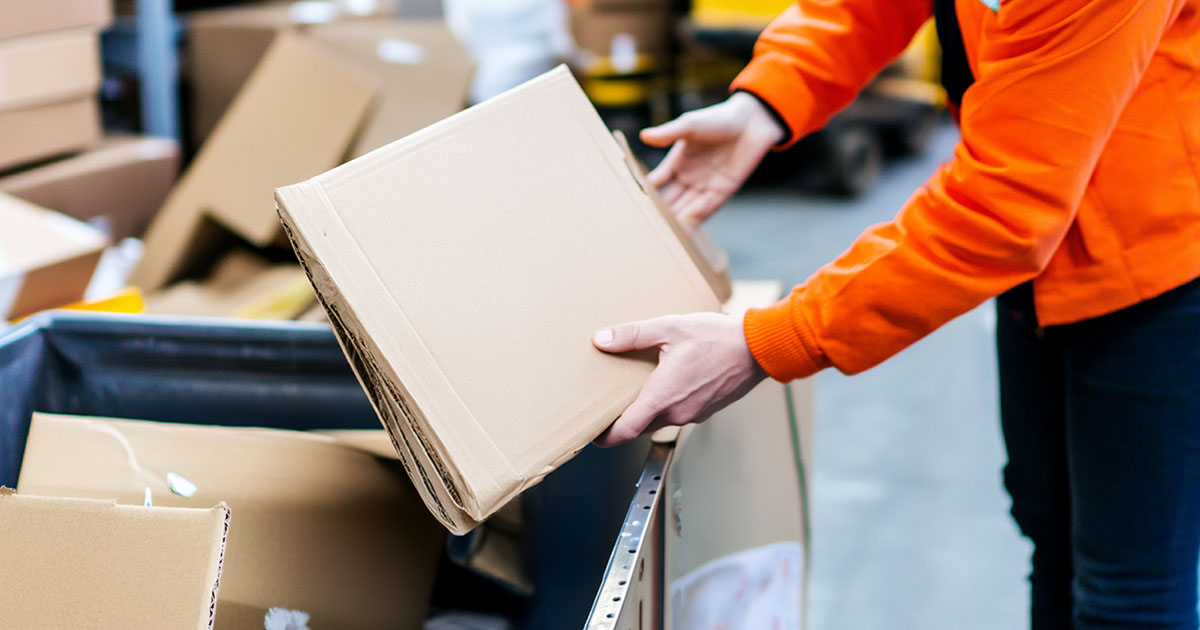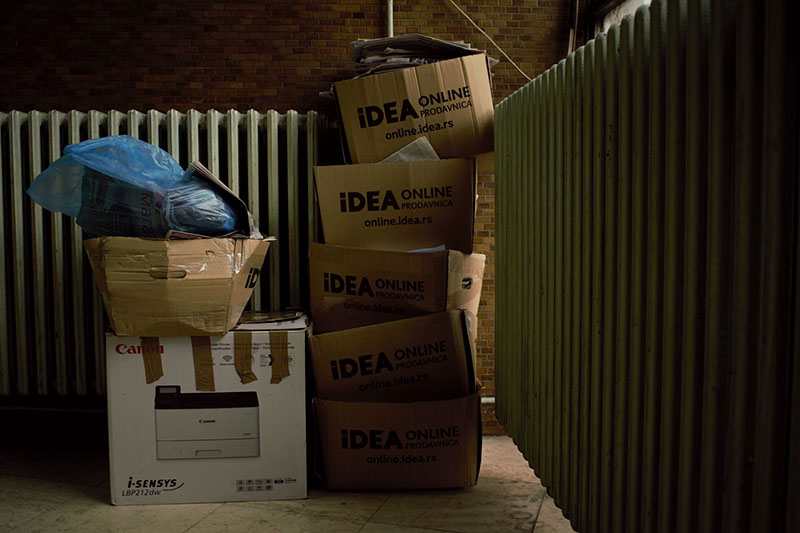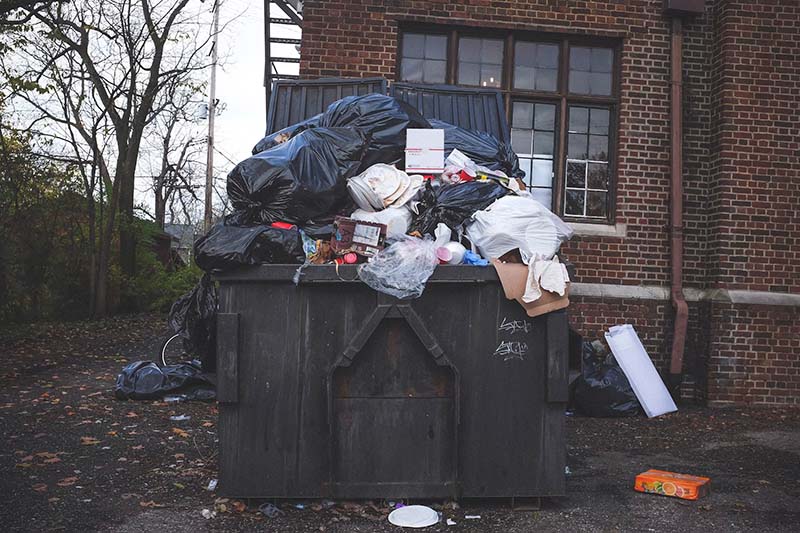How to Dispose of Business Waste Correctly

Managing commercial waste is one of the most important parts of running a business. Investing in proper waste management can help you to reduce your carbon footprint, save costs and help the environment - and you won’t need to worry about getting fined! Business waste tends to be produced en masse and include toxic and hazardous substances, so getting everything to the right place is incredibly important to avoid issues such as cross-contamination.
Why Is Proper Waste Management Important?
According to UK law, businesses have a ‘Duty of Care’ towards their waste - that means it’s up to you to get it handled correctly! Hiring rogue and unlicensed waste removal companies can end up coming back to haunt you if your waste is found to be fly-tipped. It’s not just the fines that should motivate you, however - managing your waste correctly can save the environment a world of pain.
Environmental Protection
Whether your company produces wood shavings or hazardous waste, any and all rubbish types can have a negative effect on the environment when disposed of incorrectly. It’s important to get it handled properly, even if it doesn’t seem hazardous to you!
- Pollution: When waste sits out in the environment, it can release chemicals into its surroundings. This is the case for anything from soft chairs to plastic bottles.
- Choking Hazards: From stuffing to plastic wrap and wood chips, waste can be a choking hazard for wildlife. Animals will spread it around, too.
- Production Demand: When you take recyclable items to the landfill, it increases the demand for more raw materials to be produced. From factories to mining operations, production can have a heavy toll on the environment - it’s always better to recycle!
Legal Consequences
If you don’t manage your waste correctly, your company can be left facing heavy fines and legal action. Proper waste management is a business expense; like taxes, your business is expected to allocate the funds to dispose of waste correctly. Hiring traders without proper certification can backfire severely, so you should always be prepared to do your research and nt cut corners to save on costs.
How Much Does It Cost To Dispose of Trade Waste?
The quick answer is, not as much as a fine! Every company will have its own fees and prices. What you pay for can vary, from eco-friendly waste management to direct-to-landfill disposal. This will have an effect on the carbon footprint of your business, so keep that in mind too.
How To Properly Manage Business Waste

Once you’ve partnered with a waste management company, it’s time to get your rubbish sorted. Your collection company will have rules and items they can and can’t collect, so it’s your responsibility to make sure that the collection goes smoothly.
- Identify Your Waste: As the waste producer, it’s important that you identify your waste on your waste transfer notes. Set about identifying each type of waste, including hazardous items such as treated wood and chemicals.
- Segregate: This is similar to the way you do it at home - segregate waste types! Paper, wood, and plastics should all be segregated into their own bins, bags, or rooms.
- Store It Safely: Never leave your waste out in the rain. Store it in a watertight area that won’t pollute the surroundings if a bag or barrel starts to leak. Keep hazardous items like plasterboard separate from all other waste types.
- Create a Waste Transfer Note: Before you hand your waste over to another company, you must fill out a waste transfer note. Keep this on hand so that you can provide it to authorities if anything goes wrong.
What To Do With Your Business Waste
While you can choose to handle your business waste in-house, it may be a bigger undertaking than you expect. Your waste must be segregated, stored, and safely transported to the correct facility - and doing so means taking full responsibility for every step of the process.
Managing the disposal of large amounts of business waste in-house is likely to be more costly than partnering with an experienced company.
Can You Take Business Waste to the Tip?
You can’t take business waste to the tip - at least, not a facility intended for household waste. Instead, you need to get your trade waste to a licensed waste facility or recycling centre.
Recycling Centres
To recycle your waste, you’ll need to take it to a recycling centre. These may be run by private companies or local authorities depending on the location.
Licenced Waste Facilities
If your waste can’t be recycled, you should take it to a licensed waste facility. These facilities can be anything from processing plants to landfill sites.
Waste Management Company
To dispose of your business waste in a hassle-free way, get in touch with a business recycling professional who will organise collection of your commercial waste and dispose of it responsibly.
What Not To Do With Business Waste

When you’re considering what to do with your business waste, it’s recommended that you follow the steps laid out by the government. Slip ups could cost both you and the environment a lot more than licensed waste collection.
Do Not Sell It to a Scrap Collector
Scrap merchants may offer to purchase waste from you for a fee. While it can be tempting, this is not an approved method of business waste disposal! If your waste ends up improperly stored or managed, you will still be liable for it.
Do Not Transfer It to an Unlicensed Company
Rogue traders exist, and they can cause no end of headaches for waste producers looking for a cheap way of disposing of waste.
If your waste ends up fly tipped or worse causes an environmental pollution incident, you can be held liable. Keep yourself safe by checking the licensing of any company you’d like to partner with.
Do Not Fly-Tip
Fly-tipping is a serious offence, especially for a business. Dropping your waste in a field or on the verge can have a catastrophic effect on the environment and on human health, and the consequences reflect the crime.
What Are the Consequences for Improper Waste Management?

- Environmental Damage: Leaks, spills and contaminated waste can affect ground water and local water supplies, soil, and wildlife. The costs for a environmental clean-up can run into millions depending on the scale of an incident and be recuperated by the courts.
- Human Consequences: Environmental contamination doesn’t just hurt the immediate environment and wildlife - it can also damage human health.
- Court Fines: All of this can lead to seeing yourself and your business appearing in court and handed an a fine and ordered to pay costs. An unlimited fine can be imposed for improper waste management depending on the circumstances.
- Community or Prison Sentence: If a judge believes an offence is serious enough or repeat offences take place, they have the power to not only issue a fine but also order you to carry out community work or a prison sentence.
Looking to dispose of waste for your business? At HIPPO we offer commercial waste and recycling services nationwide for small and large businesses.

